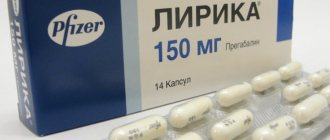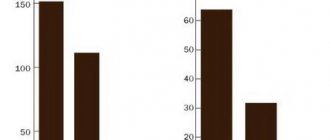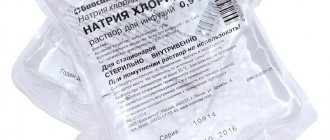- General information
- Effect on the body
- Physical symptoms
- Cognitive changes
- How to recognize a drug addict
- Tests for sodium hydroxybutyrate
- How long do butyrate addicts live?
- Analogs
- How to speed up elimination at home
- Detoxification in hospital
- Overdose
- Overdose symptoms
- First aid
- Rehabilitation
- Coding
- Rehabilitation at home
- Working with codependents and resocialization
- How to quit on your own
- conclusions
Attention!
Drug use causes irreparable harm to health and poses a danger to life!
General information
Sodium hydroxybutyrate (NO) is a medication that is used in medicine for anesthesia. Oxybutyrate puts a person into a deep, medicated sleep. Thanks to this, the drug can be combined with narcotic analgesics for long-term anesthesia.
Butyrate is structurally gamma-hydroxybutyric acid (GHB). In the USA, studies were carried out in which it was proven that GHB is able to prolong the life of brain neurons under conditions of hypoxia (lack of oxygen).
In practical medicine, additional uses for butyrate are found. It is effective for daytime sleep syndrome (narcolepsy).
The drug was first synthesized at the end of the 19th century. The author of the technique was the Russian scientist Alexander Zaitsev. But, like most discoveries of that time, GHB did not attract interest from other scientists. After 50 years, it was proven that GHB is able to protect brain neurons from hypoxia.
In the 90s of the 20th century, hydroxybutyrate was used by people who were actively involved in sports. It is believed to increase the production of growth hormone, which plays an important role in the development of muscle strength and endurance.
This is all subject to compliance with the dosage prescribed by the doctor. If the dose is increased to obtain narcotic intoxication, then disorders of the respiratory and cardiovascular systems appear.
The circulation of hydroxybutyrate is limited in almost all countries where it is used for medical purposes. This is due to the fact that the substance is used by rapists and drug addicts, it is colorless and odorless, this allows it to be mixed with food or drinks and given to victims.
For recreational purposes, the drug is used more often in combination with other drugs or alcohol. Typically, the dose of the substance in such cases exceeds the permissible limit. The consequence of such mixing is increasing damage to internal organs. First of all, damage occurs to neurons and hepatocytes.
Butyrate is toxic with long-term use. The drug causes physical and mental dependence. This is evidenced by studies conducted on 26 thousand people. It was also indicated that several people died due to an overdose of sodium hydroxybutyrate.
When the substance began to be used as a drug, its circulation and distribution were sharply limited. In the world, sodium hydroxybutyrate is used mainly in post-Soviet countries, Italy and France.
Content:
- Properties of the drug
- Effect on the body
- Adverse reactions
- How to recognize a butyrate addict
- How to quit drugs
Sodium hydroxybutyrate is a substance of synthetic origin.
It was created artificially. Like other similar developments, the drug very quickly causes drug addiction.
The drug has a negative effect on internal organs and changes mental activity. It is incredibly difficult to give it up.
The patient can find out how to get rid of butyrate from a narcologist. It is almost impossible to heal on your own with daily use of a psychostimulant.
Effect on the body
The effects of the drug are very dose-dependent. Even increasing the dose by more than 0.25 grams can increase the effect several times. For recreational purposes, large doses are always used.
Main effects from small doses:
- sedation;
- acceleration of the falling asleep phase;
- anesthesia.
These effects will occur with a small dosage, which does not lead to addiction. If butyrate is used for the purpose of obtaining drug intoxication, then people experience problems with memory, sensations, vomiting, headaches, and hallucinations. The changes usually permanently affect organ function.
Physical symptoms
What a person will encounter after consuming butyrate in high doses:
- fasciculations;
- vomit;
- paresthesia;
- falling asleep with loss of consciousness;
- respiratory arrest;
- increase or decrease in heart rate.
Cognitive changes
Changes in the central nervous system when consuming butyrate:
- memory impairment;
- loss of ability to concentrate;
- incoherent speech;
- slower reaction;
- decrease in intellectual abilities.
The substance greatly slows down the reaction. Therefore, those who use it do not have the right to drive a car or perform work in which a person will be responsible for the lives of other people (for example, a coordinator of planes, trains).
In 90% of cases, butyrate is used with other drugs. This leads to rapid destruction of not only the brain, but also internal organs.
Detoxification
3 000 ₽
Calling a narcologist to your home
3 000 ₽
Similar drugs:
- Sodium oxybate Solution for intravenous and intramuscular administration
- Halothane Inhalation aerosol
- Propofol Lipuro Emulsion for infusion
- Calypsol Injection solution
- Ketalar Solution for intravenous and intramuscular administration
- Sodium oxybutyrate Substance-powder
- Ketanest Solution for intravenous and intramuscular administration
- Sodium oxybutyrate Solution for intravenous administration
- Propovan Emulsion for infusion
- Thiopental Lyophilisate for the preparation of solution for intravenous administration
** The Drug Directory is intended for informational purposes only. For more complete information, please refer to the manufacturer's instructions. Do not self-medicate; Before starting to use the drug Sodium hydroxybutyrate, you should consult a doctor. EUROLAB is not responsible for the consequences caused by the use of information posted on the portal. Any information on the site does not replace medical advice and cannot serve as a guarantee of the positive effect of the drug.
Are you interested in the drug Sodium hydroxybutyrate? Do you want to know more detailed information or do you need a doctor's examination? Or do you need an inspection? You can make an appointment with a doctor - the Euro lab is always at your service! The best doctors will examine you, advise you, provide the necessary assistance and make a diagnosis. You can also call a doctor at home . Euro lab clinic is open for you around the clock.
** Attention! The information presented in this medication guide is intended for medical professionals and should not be used as a basis for self-medication. The description of the drug Sodium hydroxybutyrate is provided for informational purposes and is not intended for prescribing treatment without the participation of a doctor. Patients need to consult a specialist!
If you are interested in any other drugs and medications, their descriptions and instructions for use, information about the composition and form of release, indications for use and side effects, methods of use, prices and reviews of drugs, or you have any other questions and suggestions - write to us, we will definitely try to help you.
How to recognize a drug addict
Usually there is no addiction to hydroxybutyrate alone. There are always other drugs that a person is already using or is about to use. Narcotic intoxication from sodium hydroxybutyrate is very specific. The man looks like he's drunk, but you can't smell the fumes from him.
Under the influence of the drug, increased drowsiness is possible, or vice versa, a person can talk a lot and tell various stories for hours. In cases where the dose is high, loss of consciousness occurs.
Mood swings should be suspicious. Due to long-term use, problems with concentration and memory begin, and addicted people have problems at school or work.
Addicts are constantly looking for money for a new dose. Because of this, they can steal from the house, take away valuables and equipment. But unfortunately, drug addiction never stops with hydroxybutyrate. In pursuit of new effects, people begin to use psychostimulants, alcohol, and marijuana.
In a state of withdrawal, drug addicts may experience apathy or depression. Their appetite is disrupted and they begin to lose weight. But it is almost impossible to say exactly what drug a person is abusing. For this purpose testing is carried out.
Butyrate as a drug
Liquid drugs such as sodium hydroxybutyrate are practically not used by bodybuilders today, and butyrate is not used for pregnant women as an anesthesia due to health risks. Previously, butyrate was used during childbirth, but the consequences of such anesthesia were quite severe. Today, other drugs are used for these purposes.
What does butyrate look like?
Butyrate is a dangerous synthetic drug that destroys the human central nervous system. What does he look like? It is a white powder, highly soluble in water and alcohol. Drug addicts most often use sodium butyrate or butyrate salts to obtain a psychotropic effect and euphoria. The powdered substance is dissolved in liquids or alcoholic beverages. Narcologists classify butyrate as a club drug, which is associated with its effects: increased mood and sociability, euphoria, relaxation, emancipation, etc. The effect is similar to alcohol intoxication.
The effect of the drug begins 15-20 minutes after use and continues for 2-4 hours, after which a decline occurs.
Slang names
- boutique;
- oxyk;
- oxy, oxana;
- Pinocchio;
- water, water;
- lemonade;
- bottle;
- traffic jams;
- Ksyu, Ksyusha, Ksyukha;
- Sodium Oxybate;
- Liquid E, H.
Effects of drug use
Under butyrate, people lose touch with the real world. Their actions become completely unpredictable. It is very dangerous if a drug addict gets behind the wheel. In our country, there are hundreds of cases of DTM involving butyrate drug addicts. While on drugs, a person can easily get into a fatal accident and take the lives of others.
Tests for sodium hydroxybutyrate
There are no rapid tests for determining sodium hydroxybutyrate metabolites. The substance can be found in the body in a very short period, only with the help of special equipment and under conditions of high OH concentration.
In the body, butyrate quickly breaks down into water, and the byproducts are excreted through the kidneys in urine.
Due to difficulties in identifying the substance in the body, there is little data on how long it remains in biological fluids and hair.
Most studies conclude that butyrate lasts up to 10 hours in urine and from 20 to 50 minutes in blood. But the data may differ from person to person.
The drug lasts approximately 3-4 hours. But it leaves the blood a little faster, since metabolic products have a strong effect on the central nervous system and it is due to them that the effect continues when the concentration of butyrate in the blood drops.
Pharmacodynamics and pharmacokinetics
Sodium Hydroxybutyrate is characterized by interaction with various receptors, influencing the functions of Ca2+, K+ and other channels. As a result, the release of activating mediators from presynaptic terminals is suppressed and postsynaptic inhibition occurs. The drug has a depressant effect on the nervous system.
When taking small doses, an anxiolytic effect appears, the severity of neurotic disorders and some autonomic reactions to stress decreases. The hypnotic effect of the drug has also been noticed
Large doses of the drug are used for general anesthesia and muscle relaxation . In addition, a sedative, muscle relaxant, anticonvulsant and antishock effect is manifested. The development of elements of nootropic activity is possible.
During treatment, the overall resistance of the body, brain, heart, and other organs to oxygen deficiency increases. There was an improvement in microcirculation, an increase in glomerular filtration, and normalization of kidney function during blood loss.
It has been established that the substance penetrates histohematic barriers.
According to Wikipedia, the drug is currently discontinued.
How long do butyrate addicts live?
There is no exact data, since people who abuse hydroxybutyrate try to keep it secret. If you abuse high doses, it clearly shortens your life. In addition, even 1 dose can be fatal due to anaphylactic shock or overdose.
When a person falls asleep under the influence of a drug, he may experience involuntary vomiting. If vomit enters the respiratory tract, aspiration and death will occur. This phenomenon is not uncommon in opiate drug addiction and alcoholism. The mechanism of vomiting during sleep is that the autonomic nervous system tries to “wake up the person” and this leads to strong stimulation of the vomiting center.
If a person develops addiction and polydrug addiction, the quality of life is greatly reduced. If it is impossible to say exactly how many years he will live, then you can be sure that because of drugs a person will lose his social role and begin to lose friends and loved ones. In addition, diseases of internal organs occur: heart and liver failure, and the risk of cancer increases. The result is death not due to natural causes.
Use of the drug in medicine
In world medical practice, Oxybate is used in different countries for various purposes:
- In Italy, the psychoactive substance sodium oxybutyrate is used to treat alcohol dependence and relieve withdrawal symptoms.
- In the United States, the FDA has approved its use for the treatment of severe daytime sleepiness caused by narcolepsy.
- The Therapeutic Products Agencies of Switzerland and Europe, the American Academy of Sleep Medicine, and the Canadian Ministry of Health have also approved the use of Oxybutyrate for the treatment of cataplexy that develops against the background of narcolepsy.
- In Russia, sodium oxybutyrate is used in patients with a history of neurosis-like and neurotic conditions, and this medicinal psychotropic drug is prescribed to patients with traumatic injuries to the central nervous system and various degrees of intoxication.
The pharmacological effect of sodium oxybate is to enhance the metabolism of cardiac and brain tissues, the retina, as well as increase their resistance to hypoxia (oxygen starvation). In addition, the drug, which in recent years has become an object of desire for young drug addicts, can stabilize kidney function in case of significant blood loss and normalize the contraction of the heart muscle. Most often, Butyrate is used in several areas of medicine:
- In obstetrics to increase the resistance of the fetus and mother to oxygen starvation, general anesthesia during emergency childbirth, and for the rest of the woman in labor during a prolonged labor.
- In ophthalmology, for the treatment of patients with a history of primary open-angle glaucoma, in order to activate oxidative processes in the retina and improve vision as a result.
- In surgery, the narcotic substance sodium oxybutyrate is used as a long-acting anesthesia. Patients are rendered unconscious using this product when non-strip surgery in obstetrics and gynecology is required, as well as cardiac surgery or surgery related to minor injuries.
In addition, active research is underway on the possibility of using sodium oxybate for the treatment of tremors and movement disorders, psychogenic overeating, chronic fatigue syndrome, chronic cluster headaches, schizophrenic disorders and Parkinson's disease.
How to speed up elimination at home
The action ends on its own after 3-4 hours. In order to speed up this process, you need to drink plenty of fluids and exercise minimal activity (walking, cycling).
You should drink sorbents only in the first 20 minutes, then they will not have much effect.
To speed up your metabolism you need to raise your body temperature. This can be done through physical activity or by drinking hot drinks.
To make the effect go faster, do not drink alcohol. It slows down the metabolism of butyrate.
You can get rid of CNS depression after taking hydroxybutyrate by prescribing substances that stimulate the CNS. First of all, you can drink coffee and eat chocolate. Energy drinks are suitable, but they can enhance the toxic effect of the drug.
Adverse reactions
If a person does not think about how to get off butyrate, he will soon encounter the side effects of this drug. Among them:
- inability to navigate normally in space;
- rapid loss of body weight;
- enuresis;
- lethargy and drowsiness during the daytime;
- dizziness;
- attacks of vomiting and nausea;
- increased anxiety;
- hallucinations;
- severe renal/liver failure.
It is important not to delay treatment for drug addiction. Otherwise, butyrate will cause irreparable damage to internal organs. Then the person may become disabled or die.
Detoxification in hospital
If a person abuses it, then in a hospital he can undergo infusion therapy followed by forced diuresis. This will clear the drug from the blood. The second stage is symptomatic therapy, which is used to relieve withdrawal symptoms.
If a person has developed a physical dependence, withdrawal may occur, which is eliminated in a hospital with the help of medications.
Experienced narcologists know that sodium hydroxybutyrate affects the excretion of potassium from the body. A deficiency of this microelement leads to heart rhythm disturbances and cardiac arrest. Therefore, you need to be careful when performing forced diuresis. Doctors can separately instill potassium, but under strict control of laboratory blood parameters.
All types of drug addiction
Drug addiction treatment
More details
Female, age, beer
Treatment of alcoholism
More details
Indications for use
The use of Sodium Hydroxybutyrate is indicated in the treatment of:
- glaucoma;
- neurotic disorders;
- sleep disorders;
- postoperative psychosis;
- severe hypoxic conditions.
In addition, the drug is used in surgical practice as an induction of anesthesia during non-cavitary operations, maintaining spontaneous breathing.
Overdose
With each new use, the body develops tolerance to the drug. This leads to constantly increasing dosages. If the dose is kept the same, then drug addicts cannot get the desired effect, similar to the one they had after the first use of the substance.
All dependencies are formed on this principle and the dose is constantly increased. An overdose occurs in 100% of cases. At some point, the incoming amount of drug exceeds the functional capabilities of the body, and even without the onset of drug intoxication, a sharp change in homeostasis in the body begins.
Overdose symptoms
An overdose of sodium hydroxybutyrate leads to severe depression of the central nervous system. A person falls into a coma or stupor, or may simply sleep soundly. Sometimes his breathing center or heartbeat is depressed. Without the help of professionals, this leads to death.
To rule out an overdose of opiates or psychostimulants, you need to look at the pupils. In the first case they are narrowed, in the second they are greatly expanded. With an overdose of hydroxybutyrate, the pupils do not change their shape and may not respond to light (this happens rarely).
In addition, symptoms of an overdose may include:
- drop in blood pressure;
- frequent vomiting;
- bradycardia;
- convulsions;
- hallucinations;
- paranoid thoughts and illusions.
Features of Butyrate, its properties and production
The main adherents of this pharmaceutical psychotropic are young people aged 14-23 years. “Oxic” has gained popularity among this age category not only for its availability and low cost, but also for a number of abilities and capabilities:
- to lift the mood, for which it was given the slang name “dance-water”;
- force you to be relaxed in communication, which allows you to make fun of a modest friend by filming him on your phone at this time;
- stimulate physical and mental activity - a student taking Butyrate during the session can prepare for exams without rest;
- increase libido - a young man who quietly mixed the narcotic substance sodium oxybutyrate into the drink of an intractable girl will have no problem “seducing” her into any sexual relationship.
Butyrate is a normal element of metabolism occurring in the human brain. It is considered a neurotransmitter (a biologically active substance that transmits nerve impulses), although it does not fully satisfy the requirements that are placed on them.
The chemical properties possessed by the substance Sodium oxybutyrate are characteristic of short-chain fatty acids. For example, when it interacts with alcohols, an ester formation reaction occurs. Butyrate is highly soluble in water, alcohol-containing liquids and organic oxidizing agents. A synthetic salt is obtained, which is a complete analogue of GABA, a natural brain metabolite, through alkaline hydrolysis of butyrolactone.
First aid
You need to immediately call an ambulance and, without waiting for its arrival, begin to help the victim.
Before you call 911, make sure you are safe.
First aid is to create the most comfortable environmental conditions for the patient. If it is cold around, it is necessary to cover the patient; if it is hot, remove outer clothing and open the window.
Ensure good oxygen supply. If the patient is conscious, give him plenty of fluids. If convulsions begin, try to place a soft blanket or pillow near the head so that the patient does not injure himself. There is no need to put objects into the mouth to fix the tongue.
If the patient is not breathing and there is no pulse, begin chest compressions and artificial respiration. You need to start with indirect massage. To do this, use even hands to press the chest in the area of the xiphoid process. The chest should be pressed in at least 5 cm. Don’t be afraid to break the ribs, in this case it is more important to start the heart. You need to make presses at intervals of 2 presses in 1 second, every 15 seconds do mouth-to-mouth breathing, after covering your nose with your fingers.
When the ambulance arrives, it will provide symptomatic therapy and take the patient to the hospital to maintain his vital functions. If there is no aspiration or cardiac arrest, the patient can survive an overdose of butyrate.
Rehabilitation
Treatment for hydroxybutyrate addiction is complex. It includes mandatory psychological work in a group and individual work. The patient himself must want to quit using, this will be the key to long-term remission.
For physical dependence, rehabilitation includes symptomatic treatment for the development of withdrawal symptoms. But this happens in 1-4% of all addicts.
In parallel with drug addiction treatment, psychological assistance is prescribed for codependent people.
As a result, the patient must undergo resocialization and return to society as a healthy person with stable remission from addiction.
Addiction treatment
The modern recreational market is extremely diverse. Therefore, pure butyrate addiction is rare. Treatment includes standard stages: removal of the substance, anti-relapse therapy, rehabilitation. The main goal is to achieve comfortable resocialization, returning the person back to society with a high standard of living.
Detoxification
The choice of accelerated methods for removing psychotropic substances from the body depends on the patient’s condition and the severity of intoxication. Drug treatment hospitals use the following methods:
- Forced diuresis. The idea is to stimulate the kidneys using oral rehydration (about 3-4 l/day) and diuretics.
- If a drug has been recently taken orally, the patient’s gastrointestinal tract is washed out, after which they are immediately given sorbents - activated carbon, Polysorb, Atoxil.
- Infusion therapy in an approximate volume of 20-25 ml/kg body weight. Solutions with detoxifying properties are administered intravenously. These include 5% glucose, Reosorbilact, and mixtures of electrolytes.
- Cardiotonics to normalize heart function.
- In case of sharp depression of the respiratory center, dosed oxygen therapy or transfer to an artificial lung ventilation device (ALV) is required.
- Painless elimination of withdrawal symptoms.
Specialized treatment is carried out only in a hospital setting, where it is possible to provide proper assistance in the event of complications developing. All patients are under round-the-clock supervision until their condition is completely stabilized. The effectiveness of hardware methods of blood purification - plasmapheresis, hemodialysis - is low, since sodium hydroxybutyrate is quickly removed from tissues.
Rehabilitation and resocialization
The duration of rehabilitation depends on the severity of the addiction syndrome. Anti-relapse treatment is based on the following methods of influence:
- Psychotherapy – cognitive-behavioral, group, family.
- Prescribing pharmacological drugs strictly according to indications, for example, to combat existing depression or other disorders.
- Help for codependent family members. Relatives are explained the characteristics of the disease and how to combat it. Often, those close to you also need psychotherapeutic support in order to maintain health and quality of life. Adequate treatment of the patient also increases the likelihood of a rapid onset of remission.
- Participation in self-help group meetings.
- Treatment of concomitant diseases, consequences of abuse.
- Full preparation of the patient for return to society. He/she is trained to recognize risk factors, prevent relapse, and deal with stress.
As a result of addiction, people lose their jobs, families, and social status. A psychotherapist helps you comfortably return to your old life or start a new one. If necessary, the social service provides the opportunity to study, acquiring new professional skills.
Working with codependents and resocialization
Working with codependents is preparing the patient’s relatives and loved ones for life after the patient returns home. The goal of such work is to explain the peculiarities of interaction between them and teach how to resolve controversial situations. It is necessary that the patient and his relatives easily find compromises and do not hold grudges against each other. Unsaid words often become the cause of new breakdowns and conflicts.
Resocialization is the return of the patient to an active life in society. His behavior pattern, preferences and desires change. The patient must find pleasure in life other than drugs. This is the only way to forget about cravings, which can interrupt remission at any moment. Alternatively, patients may turn to religion for help.
Analogs
Pharmacological analogues of the drug are any salts of GHB. During seizures, law enforcement officers discovered not only sodium, but also potassium and even lithium versions of the homemade product. Other non-inhalation drugs for anesthesia have a different mechanism of action, effects, and consequences of abuse.
The clinical picture of intoxication is similar to that of alcohol, which is why victims of rape are rarely taken seriously. Alcohol abuse is a worldwide problem.
According to WHO (World Health Organization), ethanol causes more than 3 million deaths annually, of which about 13.5% occur among people aged 20-39 years.
How to quit on your own
The person himself must want to quit, and he must do it immediately without delaying the next day or Monday. You should always stop communicating with addicted people and friends who may suggest using drugs “for the last time.”
To distract your attention, you need to find any activity or hobby. Do not try to stop taking the substance using alcohol or other drugs. This will have no effect, but will only lead to new dependencies and problems.
Characteristics of butyrate
Chemical formula of sodium hydroxybutyrate: HO-CH₂-CH₂-CH₂-COONa. However, the composition of artisanal butyrate can vary greatly. At the same time, the consequences of drug use are not tested empirically; they are immediately “released” onto the streets. GHB salts or butyrate disrupt spatial memory and provoke, like many psychostimulants and amphetamine-type drugs, the release of neurotransmitters such as dopamine, causing a stimulating effect on the central nervous system.
conclusions
In pharmaceutical doses prescribed by a doctor, butyrate is a safe drug. But it must be dispensed only with a prescription, since the medicine is used by rapists and drug addicts. Butyrate in high doses causes problems with internal organs and can cause death due to overdose or cardiac arrest.
Dependence on butyrate develops, both psychological and physical. Treatment is best done in a hospital or a special drug rehabilitation clinic. In most cases, substance abuse is combined with other drugs or alcohol.
Withdrawal syndrome
Abstinence in drug addiction or withdrawal syndrome occurs due to the absence of the next dose of the drug. Withdrawal can last up to two weeks and is accompanied by insomnia, headaches, depression, exhaustion, and deterioration in general well-being.
Withdrawal symptoms:
- drowsiness or insomnia;
- sweating;
- fever/chills;
- paranoia;
- tremor of the limbs, jaw;
- increased heart rate;
- lack of appetite;
- increased blood pressure;
- psychoses;
- hallucinations.
Withdrawal from butyrate can be treated only in a drug treatment clinic.









